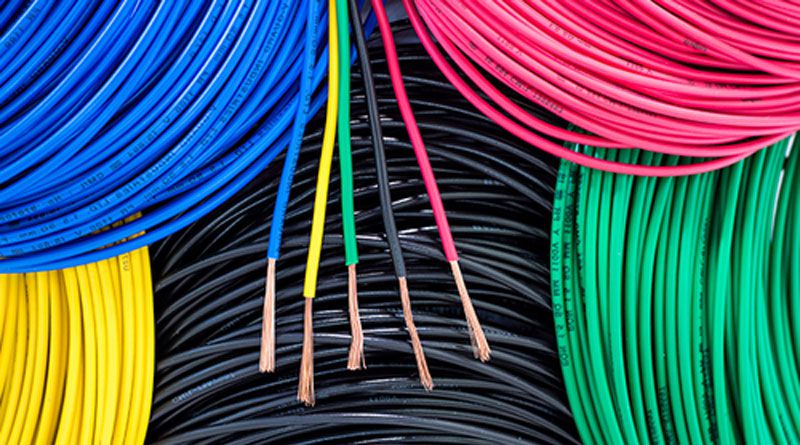When completing a wiring job, it’s important that you choose the right wire cable to ensure that your electrical wiring is as safe and effective as possible.
Different types of wire cables are suited to different tasks and environments. Some cables are designed to accommodate high voltage electrical currents, while others perform better in lower-voltage environments.
Understanding your wire cable options can help you to achieve a higher standard of cable installation when completing electrical wiring tasks.
What is a wire cable?
A wire cable is used to transport electrical energy. Cables act as conductors, making it possible to transmit energy from one point to another to power electrical tools and appliances.
Made using a range of conducting materials, cables function as a means of travel for electricity. Cables are often made from copper or aluminium materials and can include additional features, such as rubber casing.
Wire cables are designed to prioritise safety when undertaking electrical tasks. Choosing a well-functioning cable is essential when it comes to maintaining workplace safety while delivering a high-quality final product.
What jobs should a wire cable be used for?
Wire cables are used to facilitate many electrical wiring jobs, with different types of cables offering different benefits and applications.
Wire cables can be used for domestic electrical jobs, such as the installation of switch boxes and small-scale electrical appliances. They can also be used in industrial settings, where low- or high-voltage electricity may be transmitted.
Certain types of wire cables can be used for electrical wiring that must endure difficult environmental conditions, such as heat, smoke, or water. Other wire cables are well suited to servicing mobile devices and installations.
Which wire cable is the right fit for the job?
Low-voltage cables are suitable for many tasks.
For domestic installations, it is best to use flexible low-voltage cables or control cables. These cable types are designed to support small household appliances and similar electrical installations, such as switch boxes and electrical cabinets. Control cables can also be used for mobile installations.
When working in an industrial environment, it’s important to take other factors into consideration. In industrial areas and public venues, power cables are a sturdy choice. In these settings, armoured cables can protect against rodents or fire. In areas that may be at risk of fire, smoke, or gas, it’s a good idea to choose a halogen-free or fire-resistant cable type, whether the job is a fixed or mobile installation.
If installing cables outdoors, solar cables are resistant to solar radiation, and aluminium cables are suitable for indoor, outdoor, and underground installations.
For special installations such as temporary light garlands, overhead crane connections, and swimming pool cleaning systems, special cables are the right choice.
If your job requires medium-voltage cables, consider carefully which more advanced wire cable options are best suited to your needs.
What other factors should you keep in mind?
When choosing the right wire cable for your job, you’ll need to consider several factors.
Do cables need to be suitable for low-, medium-, or high-voltage? Will the installation be domestic or industrial, fixed or mobile? How much use will the cables need to endure? Are there special environmental factors, such as fire, water, or heat, that cables will need to be resistant to?
Answering these questions will help you determine the right wire cable type to suit your installation needs.
Still looking for the right wire cable to help you complete a wiring job? Visit RS Components Online to find a range of great wire cable options!

Namaste UI collaborates closely with clients to develop tailored guest posting strategies that align with their unique goals and target audiences. Their commitment to delivering high-quality, niche-specific content ensures that each guest post not only meets but exceeds the expectations of both clients and the hosting platforms. Connect with us on social media for the latest updates on guest posting trends, outreach strategies, and digital marketing tips. For any types of guest posting services, contact us on info[at]namasteui.com.

